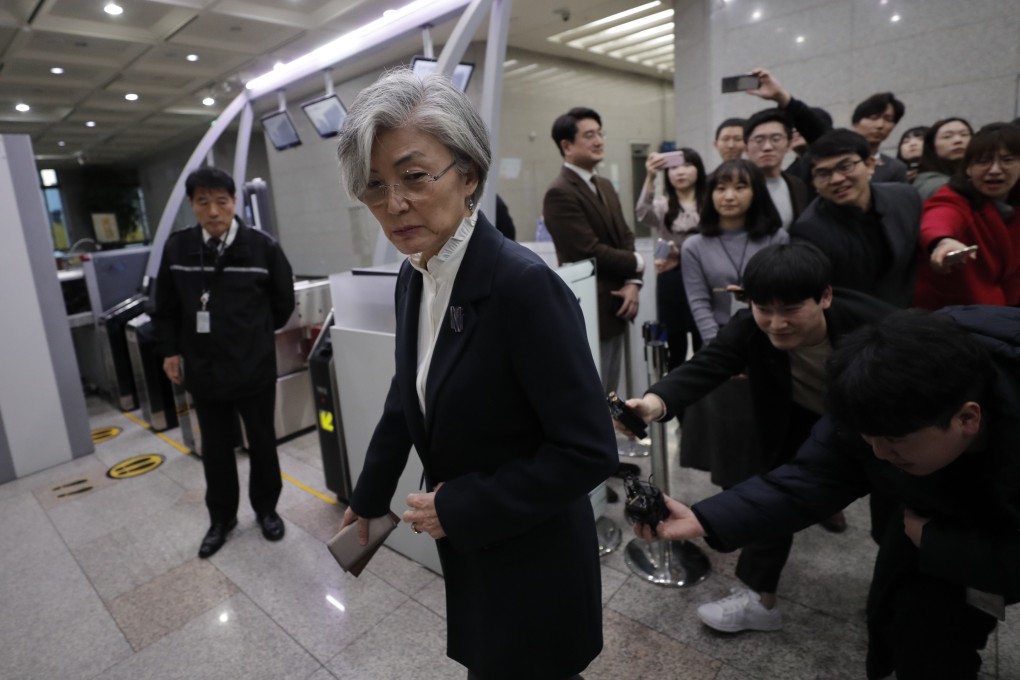Advertisement
Seoul extends intelligence-sharing pact GSOMIA with Tokyo, to Washington’s relief
- Move comes after US pressed its two allies to maintain pact, which would have expired amid sharp deterioration in ties between Japan and South Korea
- Japan’s Shinzo Abe says South Korea made strategic choice in deciding to stick with agreement, but Seoul warns pact could ‘be terminated at any time’
Reading Time:3 minutes
Why you can trust SCMP

South Korea decided on Friday to continue with a critical military intelligence-sharing pact with Japan, in a dramatic 11th-hour U-turn that will come as a relief to the US.
The pact was due to expire at midnight amid a sharp deterioration in ties between the two democracies and market economies that has alarmed Washington as it seeks to curb the threat from nuclear-armed North Korea.
But after a flurry of last-ditch diplomacy and just six hours left on the clock, Seoul announced it would “conditionally” suspend the expiry of the agreement.
Advertisement
Kim You-geun, a national security official at Seoul’s presidential Blue House, confirmed that the accord, known as the General Security of Military Agreement (GSOMIA), would not be allowed to lapse at midnight.
Kim also said Seoul decided to halt a complaint it filed with the World Trade Organisation over Japan’s tightened controls on exports of key chemicals that South Korean companies use to make computer chips and displays.
Advertisement
Advertisement
Select Voice
Choose your listening speed
Get through articles 2x faster
1.25x
250 WPM
Slow
Average
Fast
1.25x